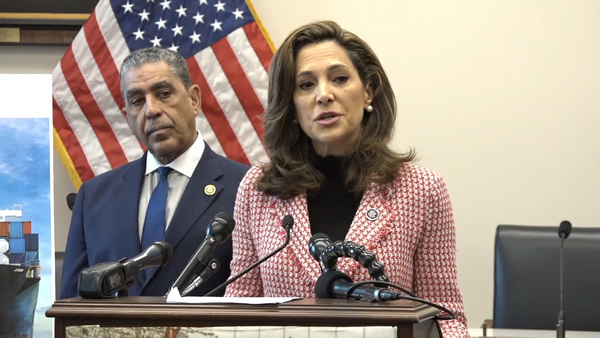Despite repeated cuts in stock trading commissions, investors rated broker fees year after year as their top concern. In 2019, the industry responded with force. Big brokerages slashed stock commissions to zero.
But while commissions may no longer differentiate brokers, cost-conscious investors should make sure they ask about other brokerage fees they may pay. And just as important, they should understand the hidden costs they may absorb due to differences in another facet of broker performance: trade execution.
Investor's Business Daily's annual Best Online Brokers study has found time and again that costs matter to investors. For the past eight years, IBD and polling partner TechnoMetrica Market Intelligence have surveyed thousands of investors about the broker attributes that matter most to them and how their own brokers stack up in those areas. In Phase 1 of the latest survey, Low Commissions & Fees once again ranked as the most important factor. And Trade Reliability, a measure of trade execution, ranked third.
The move to zero commissions entered the end game late last year. On Oct. 1, 2019, Charles Schwab made the move to eliminate commissions for U.S. stocks, ETFs and options, following in the wake of Interactive Brokers. Later that day, TD Ameritrade made the same move, followed by E-Trade the next day. Fidelity jumped on board a week after Schwab. Mobile app Robinhood — a pioneer of commission-free investing — has been offering free trades since its founding in 2013. Options-centric Tastyworks had commissions on equity trades until October 2019.
- Read Our Full Best Online Brokers Special Report
- See Lists Of The Best Online Brokers Overall And In Every Category
- Get Details On The Survey Methodology
Phase 2 of the IBD study, in which investors rated their brokers on factors including trading fees, took place in September to December 2019, so it included responses before and after the zero commission moves.
Best For Low Broker Fees: Tastyworks
Tastyworks, in its debut appearance in the survey, shot to the No. 1 ranking for Low Commissions & Fees based on its customers' ratings. It charges nothing for trades of unlimited shares of stocks and ETFs. Tastyworks also offers low pricing per contract on options trades and no commissions when closing option trades.
The brokerage, an affiliate of financial news network Tastytrade, launched in 2017.
Tastyworks says it offers state-of-the-art trading technology along with zero commissions as it pursues its stated goal of increasing transparency and fairness in equity markets. Co-CEO Tom Sosnoff, speaking of zero commissions in October, said, "It's about time this happened. Every self-directed investor wins with lower costs. ... This is a huge win for consumers."
Among other fees, margin rates start with a base rate of 7% and adjust based on the amount of margin used. There are no account maintenance fees or electronic statement fees. For the full fee schedule, check out the firm's commission and fees page.
More Top Firms For Low Broker Fees
Robinhood, also making its first appearance in the survey, placed among the top five brokers for Low Fees & Commissions. It stirred up the brokerage business when it was founded in 2012 with free trades on stocks, while offering cheap rates on options. Meanwhile, Robinhood also offers commission-free trades on cryptocurrencies, like Bitcoin and Ethereum, with its Robinhood Crypto.
The Robinhood mobile app drew a large following among millennial investors with its free trades. The privately held company recently reached a valuation of $7.6 billion based on a funding round of $323 million in July 2019.
Robinhood doesn't charge any fees to open an account, maintain the account or transfer funds to the account. Robinhood Gold, the firm's margin account, charges 5% interest on any amount borrowed over $1,000. Here's the complete fee schedule.
Rounding out the five best brokers in the Low Commissions & Fees category are Interactive Brokers, Charles Schwab and Fidelity. Interactive Brokers has ranked among the top firms in low brokerage fees every year of the IBD study. Fidelity has ranked highly for four years in a row and Schwab for three years.
Fees Lurking Behind Zero Commissions
So with zero commissions fast spreading throughout the industry, Low Commissions & Fees is fast becoming an obsolete attribute to broker clients, right?
Not so fast. It's easy to focus on the headline commission charge in deciding how much a trade costs. Meanwhile, most major brokers offer no fees to open or maintain an account. But be sure to check out margin rates. They can vary wildly. For example, Charles Schwab has a base rate of 7.5%, while Fidelity has a base rate of 8.075%.
And be aware that low broker fees may mask the price at which trades are executed.
Importance Of Trade Execution Vs. Brokerage Fees
Free trades aren't really free. According to Robinhood co-founder and co-CEO Vlad Tenev, the firm, like most brokers, sends customer orders to market makers in exchange for cash. Market makers maintain an orderly market for the stocks they handle. Market makers make money on the spread between the bid price that they pay to those placing sell orders and the higher ask price at which they'll sell to buyers.
So market makers are hungry for orders. And brokers are happy to oblige — for a price. The cash that brokers get for sending their clients' orders to market makers "helps us cover the costs of operating our business and allows us to offer commission-free trading," says Robinhood's Tenev. This arrangement is known in the brokerage industry as payment for order flow. And it could put customers' quest for the lowest trading costs in conflict with brokers' desire to earn profits.
When you place a trade, execution (when the order is filled) seems relatively instantaneous. But prices change quickly, especially in fast-moving markets. So the price you get may be slightly different from the price you were quoted. And you can pay a higher price at one broker than another. You can look at that as a hidden broker fee.
Notably, Fidelity does not take order flow payment for stock and ETF trades.
Awareness Of Price Improvement Grows
Investors are waking up to the importance of trade execution and demanding better results. That may grow even more true as more obvious broker fees drop.
Robinhood was fined in December by FINRA (the Financial Industry Regulatory Authority) for best execution violations related to customers' equity orders from October 2016 to November 2017. According to FINRA, the company "routed its customers' nondirected equity orders to four broker-dealers, all of which paid Robinhood for that order flow." Nondirected orders are where the client doesn't specify a market maker for execution and the execution is left up to the broker.
One of FINRA's rules requires firms to reasonably look for the best execution for an order, like price improvement. But Robinhood solely focused on the execution quality of its preexisting routing destinations instead of looking for a better price outside those paid destinations, all of which paid Robinhood for that order flow. Robinhood neither admitted nor denied the charges. Arguably, it was against investors' best interest because a better price could have been available at a different market maker that wasn't paying Robinhood. But Robinhood didn't check. It only used its paying market makers.
What Is Price Improvement?
To help verify the quality of trade execution, investors might need to do a bit of work. If you place a market order to buy a stock, you can expect to pay the ask price. For a market sell order, the opposite is true: You can expect to receive the bid price.
Price improvement occurs when you buy a stock at a lower price than the ask price, or when you sell a stock for a higher price than the bid price. Some brokers, like Fidelity, calculate the amount of price improvement for you. Otherwise, you'll just have to do it yourself.
Price improvement is a key way for cost-conscious investors to save money. Say an investor is purchasing 200 shares of XYZ stock with a bid-ask of 49.98-50.00. The investor should expect to pay 50 a share, but ends up paying 49.99 a share. While one penny per share doesn't sound like much, it adds up to $2 for 200 shares. Differences add up more quickly for active traders than for buy-and-hold investors.
In IBD's Best Online Brokers rankings, the Trade Reliability category reflects broker customers' confidence that their trades go through quickly at prices close to expected. With the attribute ranking third-highest in importance in the latest survey, it's no wonder that brokers are paying attention.
Trade Reliability: Tastyworks Leads, Robinhood Falters
For Trade Reliability, Tastyworks was again the recipient of the survey's highest marks, narrowly beating out industry giants Charles Schwab and Fidelity. Interactive Brokers and TD Ameritrade rounded out the survey's five highest-rated brokers in Trade Reliability.
Just as they list their broker fees, some firms are letting customers know how they're providing value in this area. Charles Schwab offers some statistics on its execution quality "to ensure orders are routed to market venues that have provided high quality executions over time."
Fidelity offers a price-improvement calculator to estimate how much money you save on each trade. According to the company, "Fidelity ... is able to obtain the best available price because it can route the order to up to 75 market centers including exchanges, market makers and automated trading systems (ATS). These market centers compete for customer order flow by improving the price." Check out Fidelity's "commitment to execution quality" on its website.
Brokerage Fees And Price Improvement
Interactive Brokers says its price improvement is far superior to the overall industry, according to a letter from IHS Markit, a London-based global information provider.
When it comes to Trade Reliability, Robinhood lagged far behind the leaders in the survey. Robinhood says it's taking trade execution seriously.
"Over the last two years," the company said in a news release, "we have significantly improved our execution monitoring tools and processes relating to best execution, and we have established relationships with additional market makers."
Check out next year's IBD survey to see if those improvements have had an impact on investors' opinions.







